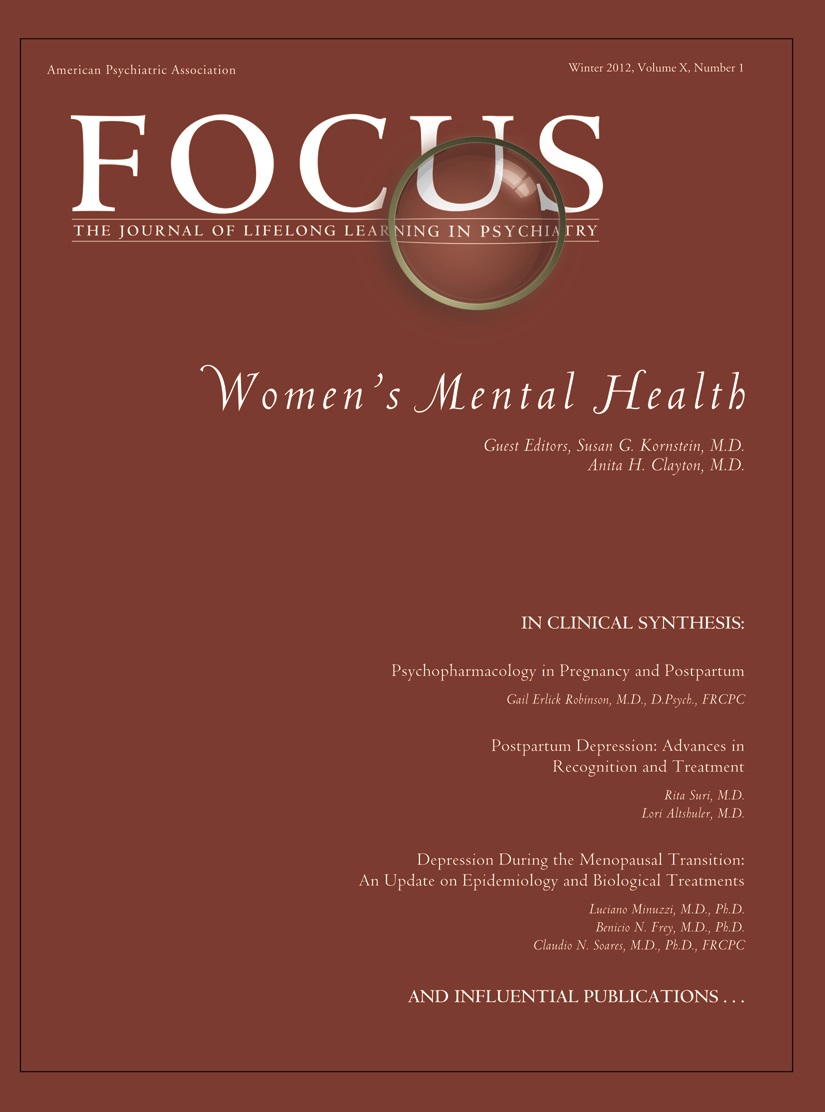The Management of Depression During Pregnancy: A Report from the American Psychiatric Association and the American College of Obstetricians and Gynecologists
Abstract
Objective: To address the maternal and neonatal risks of both depression and antidepressant exposure and develop algorithms for periconceptional and antenatal management. Method: Representatives from the American Psychiatric Association, the American College of Obstetricians and Gynecologists and a consulting developmental pediatrician collaborated to review English language articles on fetal and neonatal outcomes associated with depression and antidepressant treatment during childbearing. Articles were obtained from Medline searches and bibliographies. Search keywords included pregnancy, pregnancy complications, pregnancy outcomes, depressive disorder, depressive disorder/dt, abnormalities/drug-induced/epidemiology, abnormalities/drug-induced/et. Iterative draft manuscripts were reviewed until consensus was achieved. Results: Both depressive symptoms and antidepressant exposure are associated with fetal growth changes and shorter gestations, but the majority of studies that evaluated antidepressant risks were unable to control for the possible effects of a depressive disorder. Short-term neonatal irritability and neurobehavioral changes are also linked with maternal depression and antidepressant treatment. Several studies report fetal malformations in association with first trimester antidepressant exposure but there is no specific pattern of defects for individual medications or class of agents. The association between paroxetine and cardiac defects is more often found in studies that included all malformations rather than clinically significant malformations. Late gestational use of selective serotonin reuptake inhibitor antidepressants is associated with transitory neonatal signs and a low risk for persistent pulmonary hypertension in the newborn. Psychotherapy alone is an appropriate treatment for some pregnant women; however, others prefer pharmacotherapy or may require pharmacological treatment. Conclusions: Antidepressant use in pregnancy is well studied, but available research has not yet adequately controlled for other factors that may influence birth outcomes including maternal illness or problematic health behaviors that can adversely affect pregnancy.
(© 2009 American Psychiatric Association. All rights reserved.)



